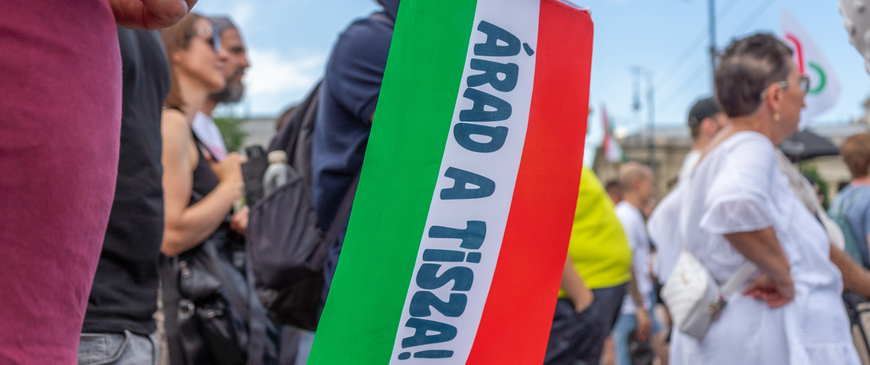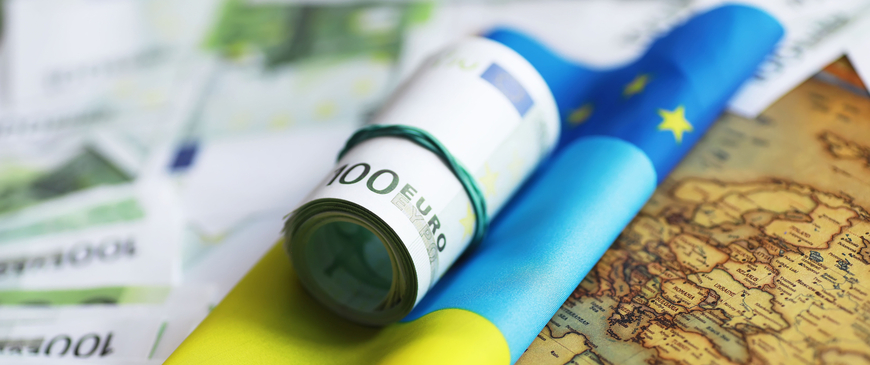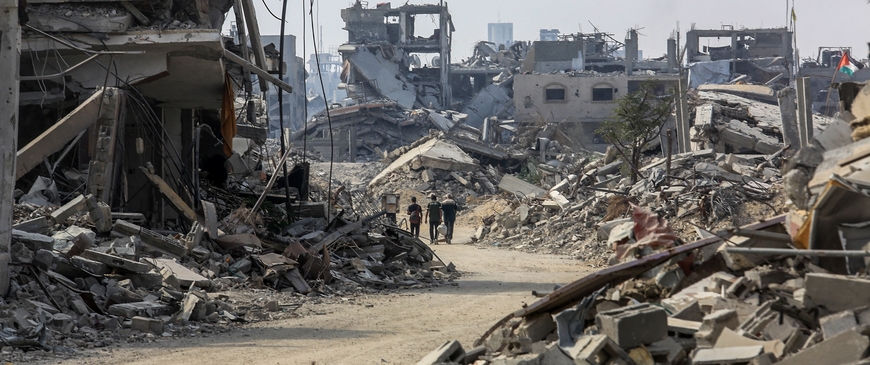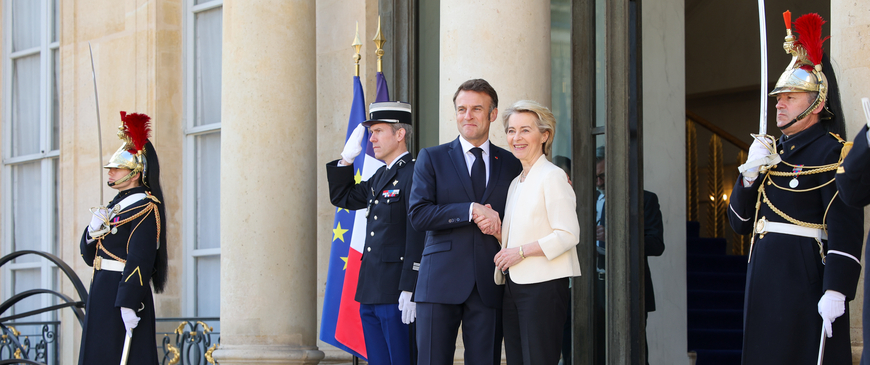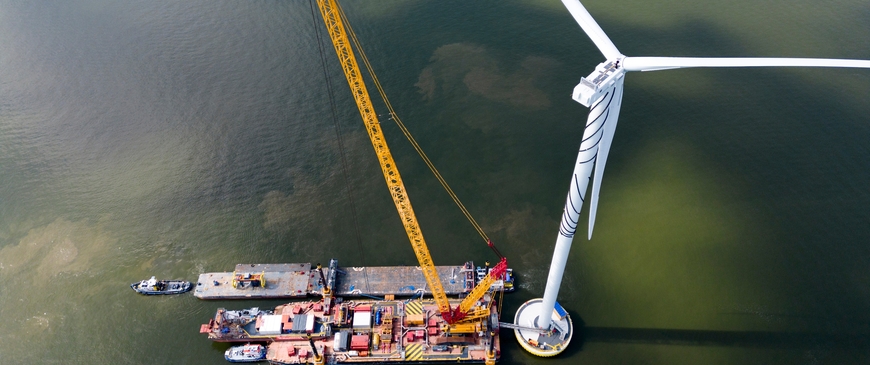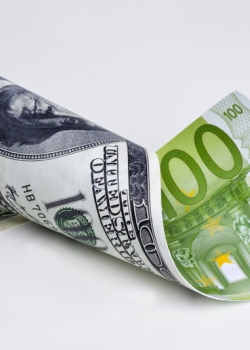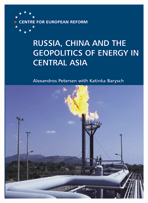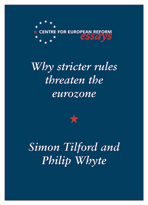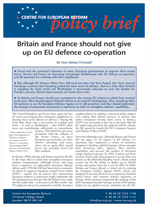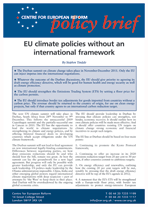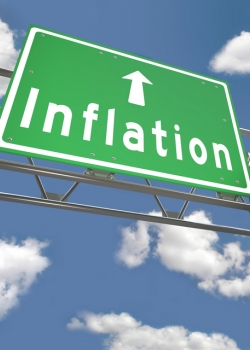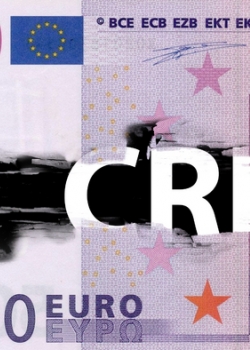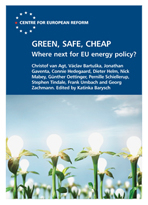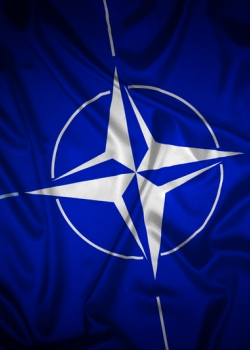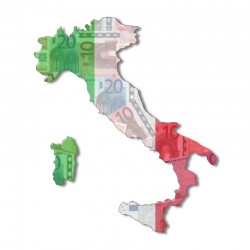Research
The eurozone and the US: A tale of two currency zones
21 November 2011
The US and the eurozone are very different monetary unions. These differences explain why financial markets are picking on the eurozone and not the US.
Russia, China and the geopolitics of energy in Central Asia
16 November 2011
China is challenging Russia's traditional dominance over Central Asia's oil and gas. The EU can help the Central Asian countries to prevent losing out in a new 'great game'.
Why stricter rules threaten the eurozone
09 November 2011
To restore confidence in the eurozone, leaders must fix its institutional flaws and stretch some rules in the interim. Instead, they are doing the opposite.
Governments need incentives to pool and share militaries
01 November 2011
Military collaboration among EU countries makes economic sense, but governments will need additional incentives to overcome reservations about initial costs and erosion of national sovereignty.
Britain and France should not give up on EU defence co-operation
24 October 2011
Although EU defence efforts have delivered less than had been hoped, they have led to some welcome improvements in European military capabilities.
EU climate policies without an international framework
21 October 2011
Whatever the outcome of the Durban climate summit, the EU should strengthen energy efficiency policies and the Emissions Trading System, to improve energy security.
Global trade imbalances threaten free trade
17 October 2011
The G20 needs a strategy to rebalance demand between the surplus and deficit economies if the world is to avoid a slide into protectionism.
Britain, the City and the EU: A triangle of suspicion
11 October 2011
Britain has abandoned 'light touch' regulation and signed up to greater supervisory powers at EU level. Yet the Channel looks as wide as ever.
Eurozone crisis: Higher inflation is part of the answer
03 October 2011
The ECB’s inflation target is too low for a currency union. It risks depressing economic growth and makes it hard for countries like Spain and Italy to regain competitiveness.
Merkel's euro shackles
28 September 2011
Chancellor Angela Merkel’s apparent inability or unwillingness to take bold steps could sink the euro. Yet is it even realistic to expect her to overcome growing opposition from within her own coalition government, a hostile public mood and the red lines drawn by a powerful constitutional court? Merkel cannot...
Sticking to the rules will not rescue the eurozone
28 September 2011
Most events have an official – or at any rate widely accepted – narrative. In much of Europe, the narrative of the eurozone crisis goes something like this: this is not a crisis of the eurozone, which has been a success.
Has Europe given up on fighting climate change?
28 September 2011
The EU has long prided itself on leading international efforts to control climate change. Today, the issue is nowhere near the top of the EU’s agenda, having been eclipsed by the economic downturn and the eurozone debt crisis.
Issue 80 - 2011
23 September 2011
- Sticking to the rules will not rescue the eurozone, Philip Whyte
- Has Europe given up on fighting climate change?, Stephen Tindale
- Merkel's euro shackles , Katinka Barysch
The euro: Reaching the endgame?
19 September 2011
Eurozone policy-makers have dug in their feet, preferring to deepen the crisis than admit their mistakes. Unless reason trumps moral posturing soon, dissolution of the eurozone is inevitable.
Green, safe, cheap: Where next for EU energy policy?
09 September 2011
Is the EU's policy on renewables damaging the single market? Why do Europeans not use energy more efficiently? Is the EU's gas policy too obsessed with Russia?
What Libya says about future NATO operations
26 August 2011
In Libya, the Europeans have for the first time responded to Washington's calls to assume responsibility for their neighbourhood. This should be cause for cautious optimism about NATO.
The US and the EU should support the Palestinian bid for UN membership
25 August 2011
The US and the EU should support the Palestinian request for UN recognition. If framed constructively, the Palestinian initiative can strengthen the prospects for peace.
Race to the bottom
24 August 2011
For decades, European countries cut defence budgets with little worry. The United States kept enough troops on the continent to deter all potential enemies, almost irrespective of how small European militaries became.
Eurozone crisis: Can contagion to Italy be arrested?
05 August 2011
The eurozone's debt crisis has spread to Italy. It is becoming increasingly doubtful that much-needed domestic economic reforms will be sufficient to restore market confidence in the country.
Britain draws the wrong lessons from Libya
01 August 2011
When it comes to defence, the United Kingdom is giving up on the EU. For most Britons, the war in Libya has confirmed that the majority of European countries are simply not serious about defence.

